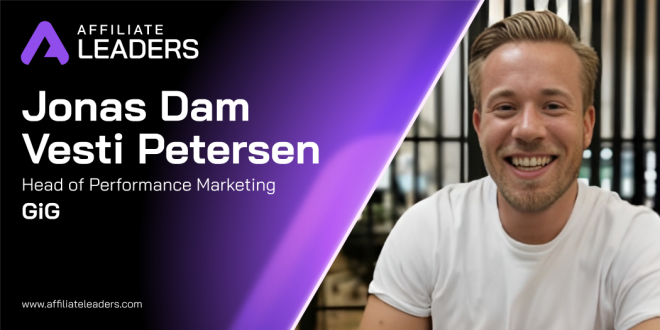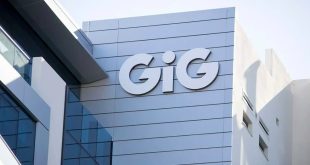Paid search, paid social, and programmatic each come with their limitations when employed as independent marketing strategies.
Yet, it is GiG’s adeptness in leveraging these diverse marketing avenues both individually and synergistically that has been instrumental in driving GiG’s ongoing expansion.
Ahead of his highly anticipated panel at the 2023 edition of the SBC Summit Barcelona, Jonas Dam Vesti Petersen, Head of Performance Marketing at GiG, sat down with SBC Media to discuss the intricacies of paid search, paid social and programmatic marketing channels, the in-house software that has become instrumental to the success of GiG’s marketing campaigns, GiG’s strategy to protect themselves against strict european regulations and utillising AI to add additional value to business, among other topics.
At SBC Summit Barcelona, your panel will discuss three powerful marketing approaches: paid search, paid social, and programmatic campaigns. How do each of these strategies excel at scale and what unique value do they offer in comparison to one another?
Jonas Dam Vesti Petersen: When considering the scalability of these separate yet remarkably akin marketing approaches outlined earlier, it might seem simple to categorise them independently. However, the genuine potential for scalability within these approaches actually hinges on their capacity to synergize effectively through appropriate utilisation and comprehension.
Programmatic marketing likely represents the easiest entry point, allowing for the establishment of a moderately sustainable setup. In this approach, a third-party platform licence is unnecessary in most markets for running gambling ads, presenting nearly boundless potential reach.
Given that programmatic marketing can be seen as an extensive push medium, the challenge revolves around devising strategies to generate direct conversions through its utilisation.
It’s worth noting that programmatic marketing is renowned for effectively initiating user engagement within the conversion funnel for re-engagement and re-targeting purposes, but it isn’t as direct an acquisition tool. This complexity is particularly prevalent for affiliates.
In the process of procuring programmatic placements, you often find yourself competing against the actual operator you’re affiliated with, vying for ad space on the same websites. Furthermore, in the majority of cases, affiliates lack the opportunity to leverage retargeting technology when a user interacts with the media, which renders understanding user behaviour for subsequent retargeting endeavours a formidable challenge.
Conversely, paid search offers a higher degree of transparency throughout the user journey, from initial search to click-through and engagement with the operator. This transparency also enables the execution of precisely targeted campaigns, rendering it a more accessible channel for comprehensive scalability. However, the endeavour to scale paid search presents an entirely different set of hurdles, especially when expanding operations to encompass multiple geographic territories.
Given that Google commands approximately 92% of the global search market share, access to aggregator licences is restricted to a mere 15 markets. Consequently, the pool of accessible traffic is exceedingly limited. To achieve meaningful scale in paid search, it becomes imperative to explore alternative search engines and capitalise on available opportunities within the search landscape. Mastery of the broader search landscape and adept utilisation thereof can facilitate customer acquisition growth at an advantageous cost.
In the realm of paid social, affiliates face perhaps the most daunting challenges in establishing a sustainable business model. Unquestionably, when contemplating paid social platforms, Meta comes to the forefront of one’s mind. The predicament inherent in advertising on Meta, particularly for third-party gambling sites, stems from the ever-present risk of sudden account suspension, often without prior notice and without any recourse for reinstatement.
Similar to the situation with paid search, it is advisable to explore the viability of other platforms, such as Instagram, Twitter, and Pinterest, among others. In addition to venturing into the diverse array of alternative platforms, the key to thriving in the realm of paid social involves meticulous forward planning, ensuring contingency measures are in place for potential account shutdowns.
While each of the aforementioned marketing approaches possesses its own set of merits and limitations when evaluated in isolation, the crux of GiG’s success in achieving scalable growth across all three lies in our astute comprehension of how these diverse channels can be harnessed both individually and collaboratively. This approach allows for the seamless coexistence and mutually reinforcing synergy of these channels, culminating in sustained and uninterrupted growth.
Are there any particular tools, software, or platforms that have been instrumental in helping GIG’s campaigns succeed at scale?
JP: Most of the tools utilised within GiG are proprietary software developed entirely in-house.
To ensure optimal prerequisites for our business expansion, we have consistently given priority to internal tool development, focusing on solutions that fully cater to our specific requirements as opposed to investing in various third-party tools that may only partially address our business needs.
Undoubtedly, this approach results in a diverse range of technologies contributing to our growth. Among these, a prominent mention goes to our BI-Tool. This essential tool empowers us to measure and comprehend traffic from all sources, delving into even the minutest details. As a result, we acquire vital insights that guide our strategic decisions concerning effective advertising strategies and the allocation of future budgets.
The customer journey is rarely linear. How do you attribute conversions and value to each marketing channel in your approach, especially when campaigns are running at scale?
JP: GiG Media is an omnichannel department that strives to leverage various forms of digital marketing, resulting in distinct variations in terms of value and conversions across individual channels.
Our objective is to maintain a continuous stream of initiatives for each marketing channel, spanning different stages. These stages encompass ongoing initiatives geared towards potential future revenue, midstage projects that may either be discontinued or integrated into the core business and initiatives that have successfully navigated the initial stages and demonstrated their viability. Such successful projects are then developed further and scaled as appropriate.
The determination of priorities regarding which initiatives to scale and the manner in which to do so is significantly influenced by our business’s intended direction and the specific markets we aim to concentrate on.
A successful marketing approach requires monitoring and adjustment. How does GIG measure the effectiveness of campaigns, and what KPIs do you prioritise?
JP: This will always be an ongoing and endless cycle. Assessing the efficacy of a campaign extends beyond mere acquisition numbers; it involves grasping how to incorporate KPIs like engagement, reach, and re-targeting as integral elements in gauging the success of your marketing campaigns. Anticipating to operate a prospering and scalable business solely by concentrating on hard-core acquisition KPIs will prove exceedingly challenging if your aim is to mitigate external risks while maintaining a flexible business model.
GIG has developed a compliance tool that addresses market-specific legislation and advertising standards. We’re keen to know your thoughts on the increasing trend of strict gambling regulations being introduced across different European countries. What implications (if any) do you see for the gambling industry and its stakeholders?
JP: The progressively stricter regulations enforced in various regulated countries, as well as in upcoming regulated markets, will inevitably pose significant challenges for certain affiliate businesses and their survival. However, back in 2018 when GiG Comply was established to fulfill this role, it was clear that the industry was trending towards heightened regulation. At GiG, we’ve consistently considered this aspect when expanding into new business domains, ensuring both current and future revenue sources. If your business relies on taking shortcuts, you will likely face difficulties in the long run. I strongly believe that the growing regulations will ultimately distinguish between the sheep and the herd.
In the ongoing discourse surrounding affiliation and AI, there has been significant emphasis on how AI can enhance the effectiveness and productivity of affiliate websites. What’s your perspective on this matter? Does GIG leverage AI in day-to-day work?
JP: There’s no doubt that AI will inevitably play a significant role in every online business. Much has been said about its potential to revolutionise our work processes and the generation of content, creatives, and other marketing materials. However, relying solely on AI for content creation has had detrimental effects on businesses, particularly when crafting content for SEO-oriented websites.
It’s important to remember that while AI simplifies content generation, search engine platforms can just as easily employ AI to detect artificially generated content.
At GiG, we are closely monitoring AI’s progress to identify areas where it can bring added value to our operations. One application we have embraced AI for is the creation of landing pages, which are used for quick and effortless split testing.
It’s no secret that GiG has decided to reorganise its business by separating the media services and sportsbook tech units. How do you think this decision reflects on the company’s future, and what efforts will be put in place to enhance the lead generation side of the business?
JP: The objective of the split is to enhance the focus for each business segment, optimise opportunities for growth, and enable each business to leverage the strategic and financial agility inherent in their unique business models. This division will result in two industry-leading enterprises with the potential to achieve accelerated growth compared to the current corporate framework.
Q8: Your panel’s focus on the job’s more practical aspects promises to offer unique learning opportunities. What valuable practical insights and skills can our audience expect to gain from attending the panel at SBC Summit Barcelona?
JP: I think it’s definitely going to be an intriguing discussion, given the diverse panel you’ve assembled. I believe the insights that will be discussed and shared are bound to be highly versatile, showcasing a range of approaches and considerations for scaling paid media marketing on a global level.
Jonas Dam Vesti Petersen will be speaking on the ‘How to Succeed at Scale – Paid Search vs Paid Social vs Programmatic’ panel, which is part of the ‘Affiliate Focus’ conference track at SBC Summit Barcelona. The panel is scheduled for 20 September, from 15:00-15:40.
Go to the official SBC Summit Barcelona website to purchase a full-event pass that gives you access to 7 conference stages, as well as the exhibition and the evening networking parties. You can purchase your ticket at a discounted rate of €400, saving you €200. The Early Bird deal expires on Friday, 28 August.
Are you an affiliate? Apply for the complimentary affiliate pass here.









